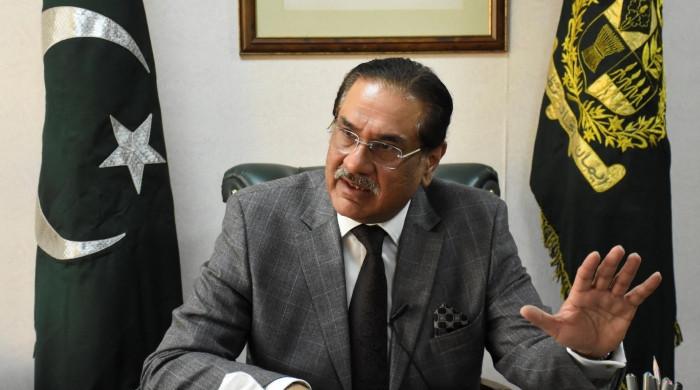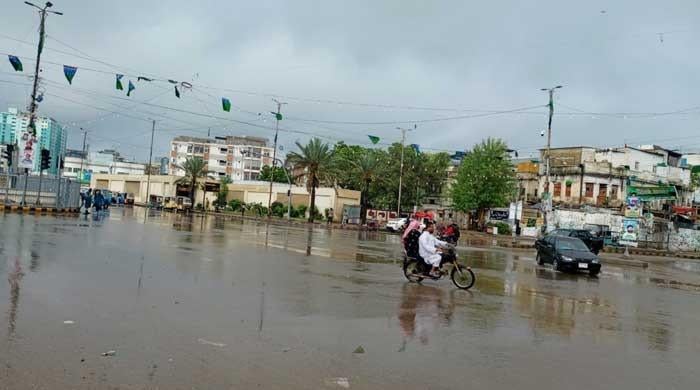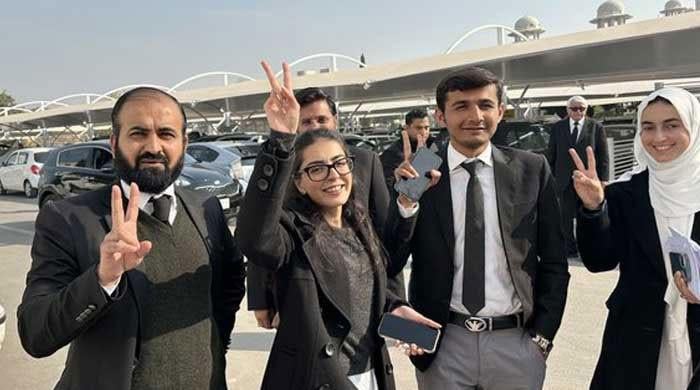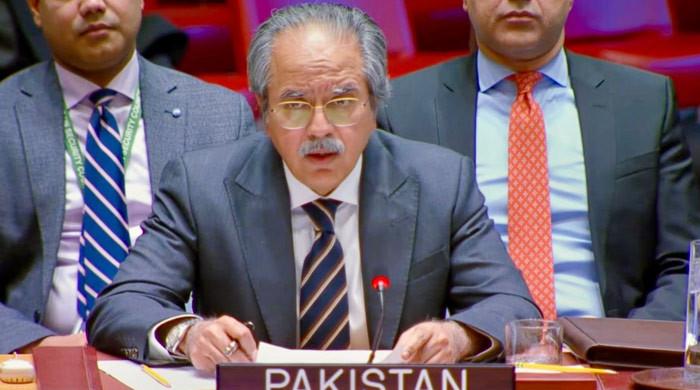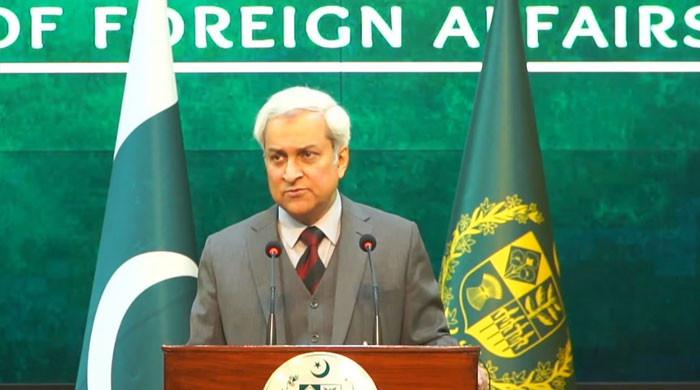Article 63(A): Violation of Article 63(G) bigger crime than defection, says SC judge
SC adjourns hearing on presidential reference seeking interpretation of Article 63(A) till Wednesday noon
May 10, 2022
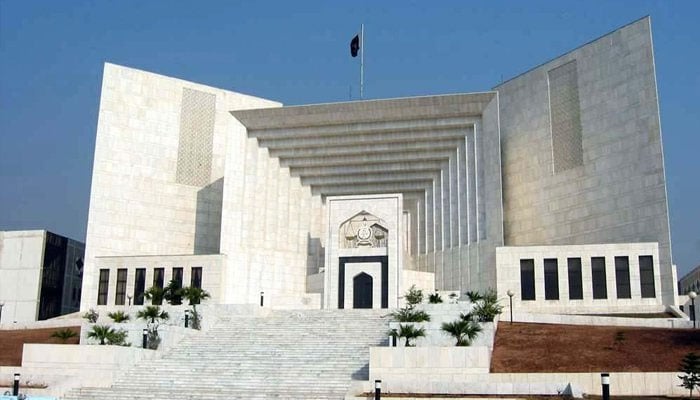
- SC adjourns hearing on presidential reference till Wednesday noon.
- Awan tells Supepe Court Article 63(A) itself disqualifies dissidents.
- PML-Q's lawyer Siddiq also presents arguments during the hearing.
ISLAMABAD: The violation of Article 63(G), pertaining to defamation of the army, is a bigger crime than defection, Justice Mazhar Alam Miankhel of the Supreme Court said Tuesday in response to an argument by former ruling party PTI's lawyer, Babar Awan, during the hearing of presidential reference seeking interpretation of Article 63(A).
A larger SC bench, comprising Chief Justice of Pakistan (CJP) Umar Ata Bandial, Justice Muneeb Akhtar, Justice Aijazul Ahsan, Justice Mazhar Alam, and Justice Jamal Khan Mandokhel, was hearing the reference.
Later, the court adjourned the hearing till Wednesday 12pm.
At the outset of the hearing, Awan continued his arguments.
"Article 63(A) would be ridiculed if a lawmaker is de-seated and becomes a minister after getting elected again," Awan said.
He contended that defection from one's party is a serious crime.
At this, Justice Miankhel remarked that in his view violating Article 63(G) is a bigger crime.
Awan said that even a defaulter of utility bills is ineligible for National Assembly's membership.
At this, Justice Mandokhel inquired if the candidate would remain ineligible if he pays the bills before the election.
Justice Ahsan remarked that non-payment of utility bills cannot make a candidate ineligible for life which means they would be ineligible after clearance of bills.
Meanwhile, Awan said: "The lawmakers would be disqualified for life if Article 63(A) doesn't define the duration of disqualification."
Justice Ahsan corrected him by saying "the lawmakers would stay disqualified until the Supreme Court (SC) cancels the disqualification.
He said that life-long disqualification can be awarded only under Article 62(F)1.
However, he told Awan that the court has noted his point.
Referring to Justice Ahsan's remark, Justice Akhtar inquired what is the link between Article 63(A) and 62(F)1.
During the hearing, Justice Ahsan observed that the lawmakers would stay disqualified until the Supreme Court (SC) cancels the disqualification.
Awan contended that Article 63(A) itself disqualifies the dissidents.
"Should it be allowed that 26 members leave the party altogether?" he asked, adding that this would turn the majority of a party into a minority.
Responding to the court's query if it could extend the punishment even for a day, Awan said that the court has unlimited authority.
After Awan completed his arguments, PML-Q's lawyer Azhar Siddiq presented his arguments.
The court inquired who is to determine the character of party members.
At this, the PML-Q lawyer maintained that the constitution has given the party chairman the right to determine the character of the party members.
"Officials resign over the corruption of a single pound. Here [in Pakistan] the people disqualified by courts for not being sadiq and amin [honest and trustworthy] are not willing to comply with the orders," he said.




